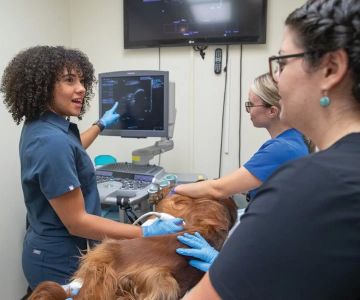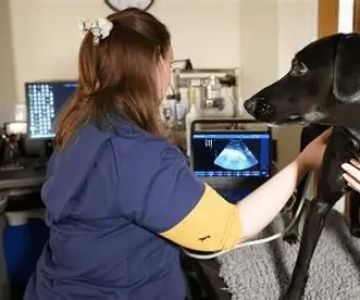- 1-Overview-of-Tax-Deductibility-for-Veterinary-Expenses-in-Canada
- 2-Conditions-for-Claiming-Veterinary-Expenses-as-Tax-Deductions
- 3-Examples-of-Eligible-and-Ineligible-Veterinary-Expenses
- 4-Real-Life-Case-Studies-on-Veterinary-Expense-Deductions
- 5-Tips-for-Maximizing-Your-Tax-Benefits-with-Pet-Medical-Expenses
- 6-Common-Misconceptions-about-Veterinary-Expenses-and-Taxes
- 7-Where-to-Find-Professional-Help-for-Pet-Expense-Tax-Issues
1. Overview of Tax Deductibility for Veterinary Expenses in Canada
Many pet owners ask, are veterinary expenses tax deductible in Canada? The straightforward answer is that generally, routine veterinary expenses for personal pets are not tax deductible. The Canada Revenue Agency (CRA) does not consider standard pet medical bills as eligible medical expenses for tax credits. However, there are exceptions in specific cases, particularly when pets serve a specialized role or when veterinary care is related to certain disabilities.
Understanding the boundaries of tax deductibility is crucial for pet owners seeking to manage their expenses effectively.
2. Conditions for Claiming Veterinary Expenses as Tax Deductions
2.1 Service Animals and Support Roles
Veterinary expenses may be deductible if the animal is a certified service or support animal, assisting a person with disabilities. The cost of maintaining such an animal, including veterinary care, can sometimes be claimed as a medical expense under CRA guidelines.
2.2 Business or Farm Animals
For those who own animals used in farming or business activities, veterinary expenses related to these animals are often considered business expenses and can be deducted accordingly. This distinction is important for self-employed individuals or farmers who care for livestock.
3. Examples of Eligible and Ineligible Veterinary Expenses
3.1 Eligible Expenses
Examples include veterinary care for service animals, prescribed medications, specialized treatments required for animals integral to business, and certain emergency care for farm animals.
3.2 Ineligible Expenses
Routine check-ups, vaccinations, grooming, and general pet healthcare for household pets typically do not qualify. These costs, while important, fall outside the scope of tax deductions.
4. Real-Life Case Studies on Veterinary Expense Deductions
Consider Sarah, who relies on a guide dog for mobility. Her veterinary bills for regular health checks and treatments were partly deducted under her medical expenses during tax filing. This example highlights how service animal-related expenses can be tax-beneficial.
On the other hand, Mark, a small-scale farmer, deducts veterinary care costs for his herd as business expenses, effectively reducing his taxable income and offsetting some of the costs of animal care.
5. Tips for Maximizing Your Tax Benefits with Pet Medical Expenses
Keeping detailed records and receipts is essential. Consult with a tax professional to identify if your veterinary expenses qualify under CRA’s medical expense rules or business expense deductions. Understanding your eligibility can help you claim rightful tax benefits.
Additionally, consider pet insurance plans that may reduce out-of-pocket costs and provide financial stability for unexpected veterinary expenses.
6. Common Misconceptions about Veterinary Expenses and Taxes
A common myth is that all veterinary bills are tax deductible, which is not the case in Canada. Another misunderstanding is confusing pet medical expenses with charitable donations, which are separate tax issues altogether.
Clarifying these points helps avoid mistakes and ensures compliance with tax laws.
7. Where to Find Professional Help for Pet Expense Tax Issues
If you’re unsure about your eligibility or want personalized advice, consulting with a certified accountant or tax specialist experienced in Canadian tax laws is recommended. They can help navigate complex situations, such as distinguishing personal versus business-related expenses.
For pet owners seeking trusted veterinary products and services that complement financial planning, exploring options through established providers can help manage both health and cost concerns effectively.











